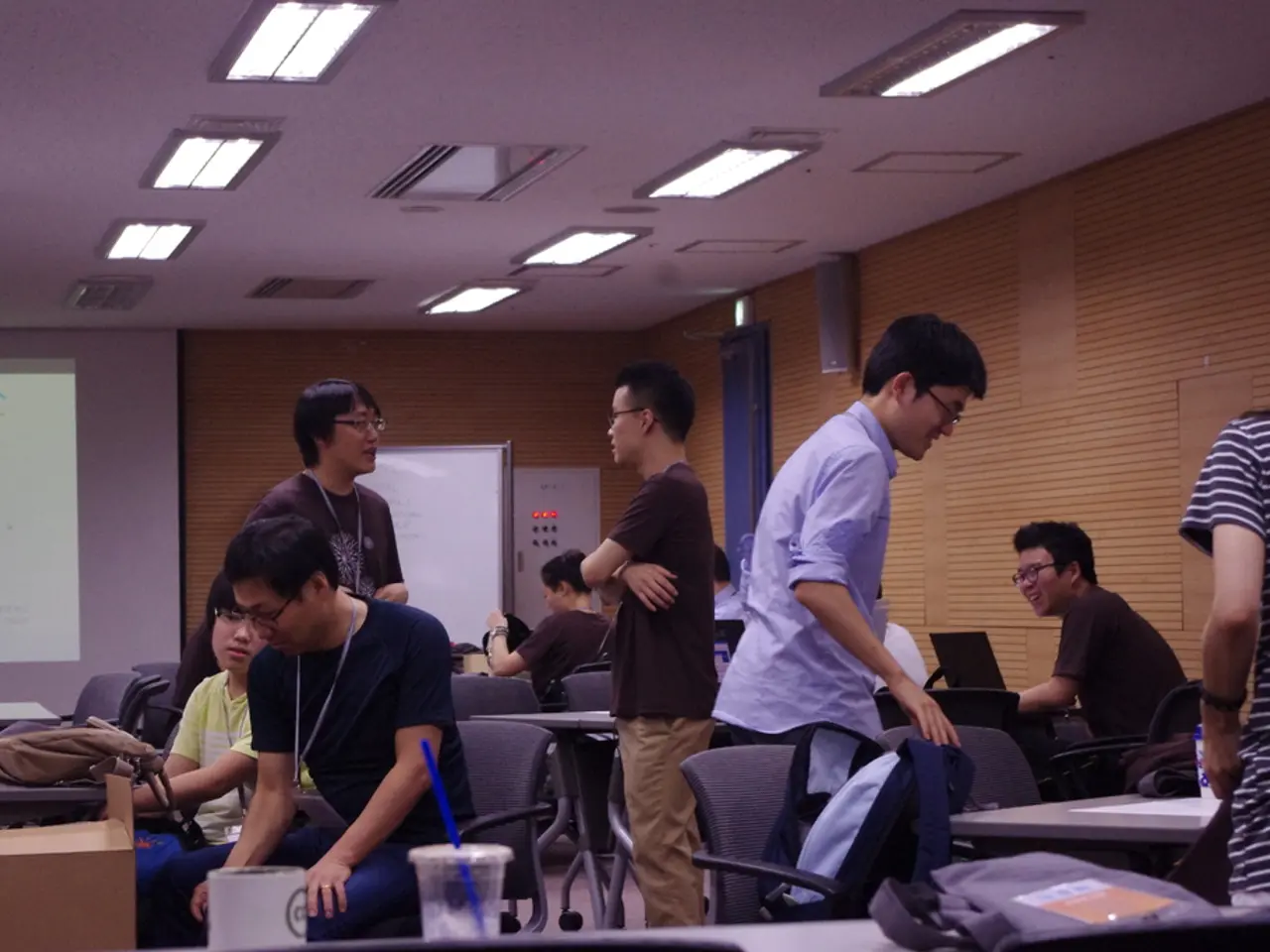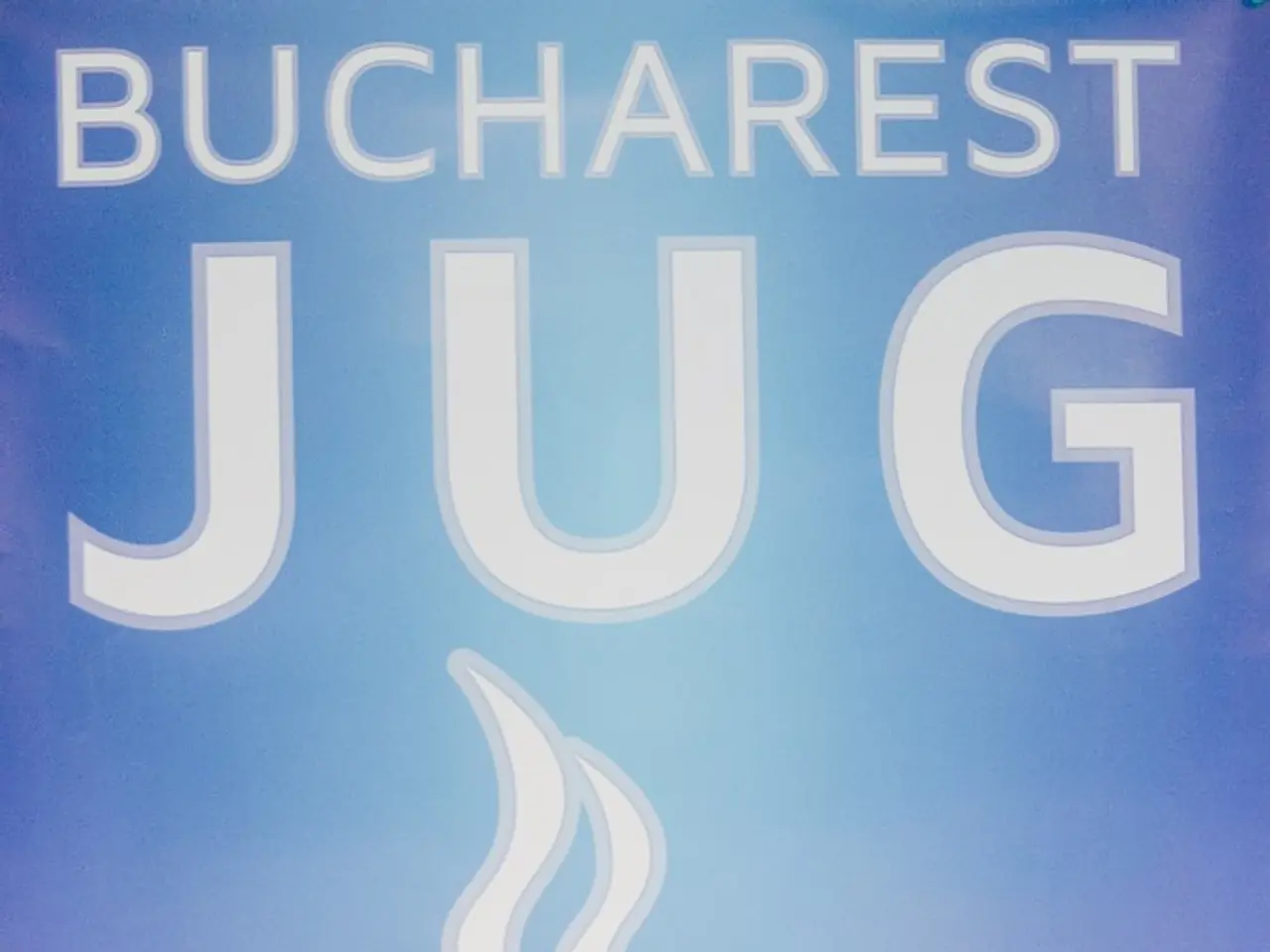Cardano Decision Committee Votes on $275 Million Treasury: Selection of 39 Projects, Implementation of Smart Contracts, and Major Reorganization
Cardano Foundation Enhances Transparency with New Treasury Management Approach
The Cardano Foundation has taken a significant step towards transparency and decentralization with its new treasury management approach. This approach, which involves a shift towards smart contract and Delegated Representatives (DReps) for fund disbursement, is part of a broader experiment in collaboration, structured evaluation, and automated accountability.
The voting system for the treasury proposals is designed to ensure fairness and transparency. Each proposal is assessed against the Foundation's publicly declared evaluation framework, and the votes by the Cardano Foundation DRep demonstrate this transparency. The voting window remains open until Epoch 576 (August 17, 2025), but proposals can be ratified earlier if the necessary thresholds are met.
The approval of Treasury Withdrawal Governance Actions (TWGAs) requires at least two out of the three governance roles—DReps, Stake Pool Operators (SPOs), and the Constitutional Committee (CC)—to vote in favour. This dual-approval mechanism applies to all governance actions, including treasury withdrawals, protocol parameter changes, and hard fork initiations, strengthening decentralization and network stability.
Intersect, the Cardano Foundation's decentralized governance structure, acts as the Administrator for treasury proposals. It oversees the efficient, transparent execution of community-approved decisions in line with the Cardano Constitution. This includes onboarding approved vendors and creating smart contracts to govern fund disbursement and milestone tracking. However, Intersect as Administrator does not control governance outcomes; rather, it supports implementation after proposals receive the required votes.
The Cardano Foundation actively participates in evaluating treasury withdrawals with a structured framework, assessing strategic alignment, financial viability, and delivery clarity. Most proposals received "YES" votes, with a focus on core development, zero-cost funding models, ZK technology, real-world asset integration, and improved developer infrastructure.
The approved proposals include funding for projects like zkFold ZK Rollup, UTxO RPC, Pallas, Blockfrost Platform, MLabs, Tokenized Real Estate (RWA), Stablecoin Support & Fiat Ramps, Cardano Pavilion, Global Events Marketing Strategy, Intersect DAO, Catalyst 2025, and Beyond Minimum Viable Governance.
The new approach to treasury management is expected to influence other ecosystems aiming to build community-led, trustless funding mechanisms. Smart contracts will govern fund disbursement, with payments conditional on milestone delivery. Once funding approvals are finalized, Intersect will act as the budget administrator, overseeing legal and operational follow-through.
In the event of failed deliverables, the smart contract may suspend or call back subsequent payments. Some proposals, such as hardware wallet maintenance, PyCardano, and certain developer tools, received "ABSTAIN" votes due to procedural gaps or unmet evaluation criteria.
The Cardano Foundation's ambition extends beyond this new approach. It aims to make Cardano the smart contract layer for Bitcoin, with the ambition of creating a Complete Web3 Developer Stack. This shift towards transparency and decentralization is another sign that Cardano is maturing towards a fully transparent and decentralized ecosystem.
The Cardano Foundation has revealed a new treasury management approach, involving smart contracts and Delegated Representatives (DReps) for fund disbursement, as part of a broader experiment in transparency and decentralization. Each proposal is evaluated based on the Foundation's publicly declared framework, and the voting system ensures fairness. Proposals are reviewed by the Cardano Foundation DRep, highlighted by the transparency demonstrated through the voting process.
The approval of Treasury Withdrawal Governance Actions (TWGAs) necessitates at least two out of the three governance roles—DReps, Stake Pool Operators (SPOs), and the Constitutional Committee (CC)—to vote in favor. This dual-approval mechanism strengthens decentralization and network stability.
Approved proposals include funding for diverse projects like zkFold ZK Rollup, UTxO RPC, Pallas, Blockfrost Platform, MLabs, Tokenized Real Estate (RWA), Stablecoin Support & Fiat Ramps, Cardano Pavilion, Global Events Marketing Strategy, Intersect DAO, Catalyst 2025, and Beyond Minimum Viable Governance. Some proposals were rated "ABSTAIN" due to procedural gaps or unmet evaluation criteria.
The new approach to treasury management is anticipated to impact other ecosystems looking to develop community-led, trustless funding mechanisms. Smart contracts will regulate fund disbursement, making payments contingent on milestone delivery. If deliverables fail, the smart contract may suspend or recall subsequent payments.
The Cardano Foundation aims to become the smart contract layer for Bitcoin, striving to create a Complete Web3 Developer Stack. This new approach is a step towards making Cardano a fully transparent and decentralized ecosystem. Cryptocurrencies, wallets, gas, DeFi, governance, trading, Bitcoin, and coins—all part of the broader technology landscape that Cardano is aligning itself with.




